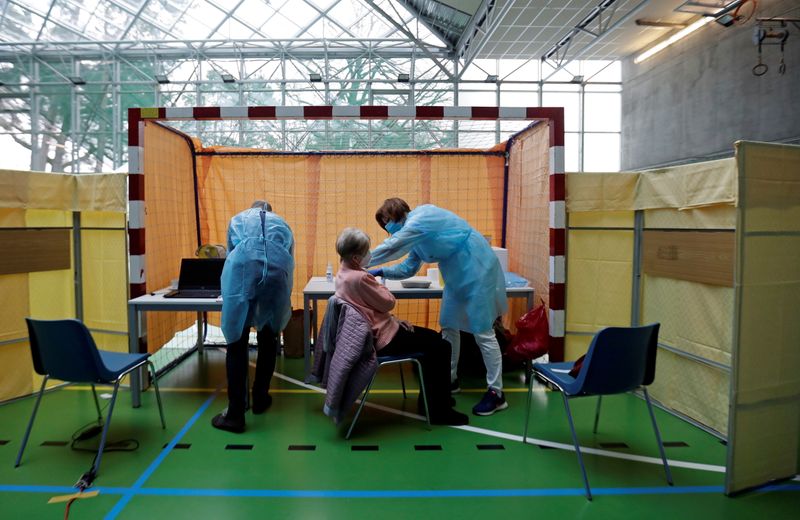PRAGUE (Reuters) – The Czech government has agreed to extend restrictions on movement among districts beyond March 21 until further notice as the coronavirus pandemic ebbs slowly, Health Minister Jan Blatny said on Thursday.
The restrictions, introduced at the beginning of March on top of the closure of schools, shops and most services and compulsory wearing of FFP2 masks, ban people from moving beyond district boundaries except for work commute and other serious reasons.
Blatny told a news conference that with daily infections no longer increasing and an emerging decline, from a peak of nearly 17,000 in early March, showed the restrictions were bringing some results and needed to be extended.
“We see that thanks to limits on movement, there is a slower increase in regions that have been less affected and only thanks to that we are able to keep the health system functional despite the huge burden,” he said.
He declined to say when any easing could come but said the government aimed to keep the status quo through the Easter holiday at the beginning of April, seen as risky if travel for family gatherings was allowed.
The Czech Republic suffered one of Europe’s worst COVID-19 waves in October and again in January and February, with daily deaths around 200 in recent weeks and a number of hospitals running out of beds and personnel.
The government also widened orders for compulsory weekly coronavirus testing of all workers to include smaller public employers, one of the last groups not already covered, Industry Minister Karel Havlicek said.
This will lead to nearly half a million people tested per day in the country of 10.7 million, he said.
Wide testing was a way the government deflected calls for shutdowns of industries such as manufacturing firms that are part of international supply chains.
The country has reported 24,117 deaths and hospitals reported over 9,000 patients this week including a record over 2,000 in intensive care units.
(Reporting by Jan Lopatka; Editing by Chris Reese and Grant McCool)



















